Despite all the terrible things that have happened in the world over the past couple of years – social injustice, loss of great artists and cultural icons, COVID-19, and the war in Ukraine – I find rays of light in the people who have decided to create something good in the midst of all the bad. I see men and women starting their own businesses, finally taking that step to do their own thing or pursue a lifelong passion. It’s beautiful to me. It says that circumstances are not in control unless we allow them to be.
This post is for those who are thinking about starting a business or who are in the very early stages. You, my friend, are standing on the platform to greater things, and before you leap, I want you to be equipped with some essential advice for your journey into entrepreneurship. Starting a business is exhilarating, and I want you to enjoy it as much as you can. If you start off the right way, you’ll be more likely to enjoy your journey rather than caving under the stress and chaos that consume so many entrepreneurs.
Here are 5 essential steps to ensure you take the smart approach to start your business. Actually, the steps are more like phases, because each one will require several decisions and actions to work through. I’d also like to note that you set the pace and timing for progression through these phases. Don’t pressure yourself to rush through them in a day or a week or even a month. The most valuable things in life take time to develop.
1 – Know That You Know This is for You
You have to decide this is what YOU want to do and commit to the process, sight unseen. It’s no one else’s responsibility to bring your vision to life. It will take a lot of time, hard work, learning, absorbing information, and doing things you may have never done before. Starting a business is a commitment that you have to be willing to keep even when things aren’t going the way you thought they would. Be passionate, be excited, and also be ready for the marathon, not the sprint.
2 – Lay the Groundwork
Start with the fundamentals: who, what, where, when, why, and how. Then break each one of these down into smaller questions. By taking the time to really think about and answer the fundamentals, you are building a foundation for success. Here are some starter questions for you to consider:
Who: Who are you (your background, your expertise, your unique selling proposition)? Who are you doing this for (your target market or niche)? Who is your company? Your business is its own entity. Define who it is by writing your vision, mission, and brand statements). Who’s on your team (will you get started solo or get others involved)?
What: What are your products? What are your services? What are the features and benefits of each? What are you going to charge? What do you need to get started?What makes you different than your competitors?
Where: Where will you operate from? Where will you deliver your products or services (local, virtual, national presence?) Where will the funds come from to start your business? Where do you want this to go (side hustle or legacy)?
When: When would you like to launch? When will you work on your business (schedule time to develop)? When will your operating hours be, once you do open?
Why: Why are you starting this business (this ties back into Phase 1)? Why should customers choose you? Why is now the right time?
How: How will you deliver your products or services? How will you keep track of your sales and business expenses? How will you communicate with customers and manage those relationships? How will you manage your business along with everything else (family, self-care, employment)? How will you stay organized and on top of all your orders or projects?
3 – Claim Your Space in the Marketplace
a) Choose your business name. Once you have chosen your business name, lock it in by checking availability and registering with your Secretary of State. There are two approaches you can take here: 1 – Reserving your name will hold your business name while you continue developing your business so no one else can snag it up. The fee for this filing is typically lower than an actual business registration. 2 – Registering your business makes the business entity real and official, either by establishing the LLC through filing Articles of Organization or creating a corporation by filing Articles of Incorporation. And you don’t need a lawyer to complete these forms. Instructions are provided for each and, unless you have very unique circumstances or legal concerns, you can do this completely on your own.
b) Secure your domain name (e.g. www.yourbusinessname.com). Once you’re sure of the name you want for your business, the next step is to find a domain name that will work. It’s hard to come by the perfect .com these days unless your business name is rather unique. So be creative and be open to other extensions (.biz, .coach, .co, .net). If you find the perfect name, buy it! There’s no guarantee it will still be available in a few weeks, and I personally would rather spend the $20 to secure the domain of my dreams instead of settling for a second choice later. And buying the domain doesn’t mean you have to build a website right away.
c) Secure your social handles. Create accounts with the major social media platforms and create consistent user names for your brand (@mybusiness). decide not to stay active on every platform out there, but at least your username will be available for your use.
Note: Items B and C above may affect Item A. If you find that the domains and social handles/usernames you wanted are already taken, you may take a step back and rethink your actual business name.
4 – Establish Your Operational Processes
This is a critical but often overlooked step. Skipping this step is the reason so many businesses have poor customer service, minimal profit margins, and overwhelmed owners. Take the time to get your business right from the beginning. Set structure and processes so you can operate with order and efficiency. Your customers will notice, and you will too.
Basic processes every business should have:
- Customer relationship management
- Bookkeeping/financial processes
- Order fulfillment/project management
- Customer feedback
As your business grows, you can always adjust your processes to fit your evolving business, but it’s much harder to try to contain chaos once it has been allowed to be the norm.
5 – Build Your Business
You didn’t do all the hard work in Phases 1-4 just to stay hidden behind the scenes did you? It’s time to let the world know who you are and what you do. When you’ve completed the prior 4 phases, you’re in an optimal position to focus on growing your business. Develop your business plan. Create a strategy. Market, advertise, network, build your brand, make connections, build relationships. Most importantly, be true to who you are (as defined in Phase 2).
Whether you’ve been thinking about it for a while or circumstances have pushed you toward entrepreneurship, you can create something beautiful in 2022 that will bless you and others this year and beyond. Don’t wait, but start smart by following these four phases. And remember you’re not on this journey alone. Schedule a discovery session to explore how we can work through any of these phases together. Connect with organizations or Facebook groups that will inspire you along the way. And lean on your small circle of true supporters who will encourage you, cheer you on, and speak life and truth.
Whatever you do, I want to hear about it! Drop a comment below and tell me what you’re up to.


